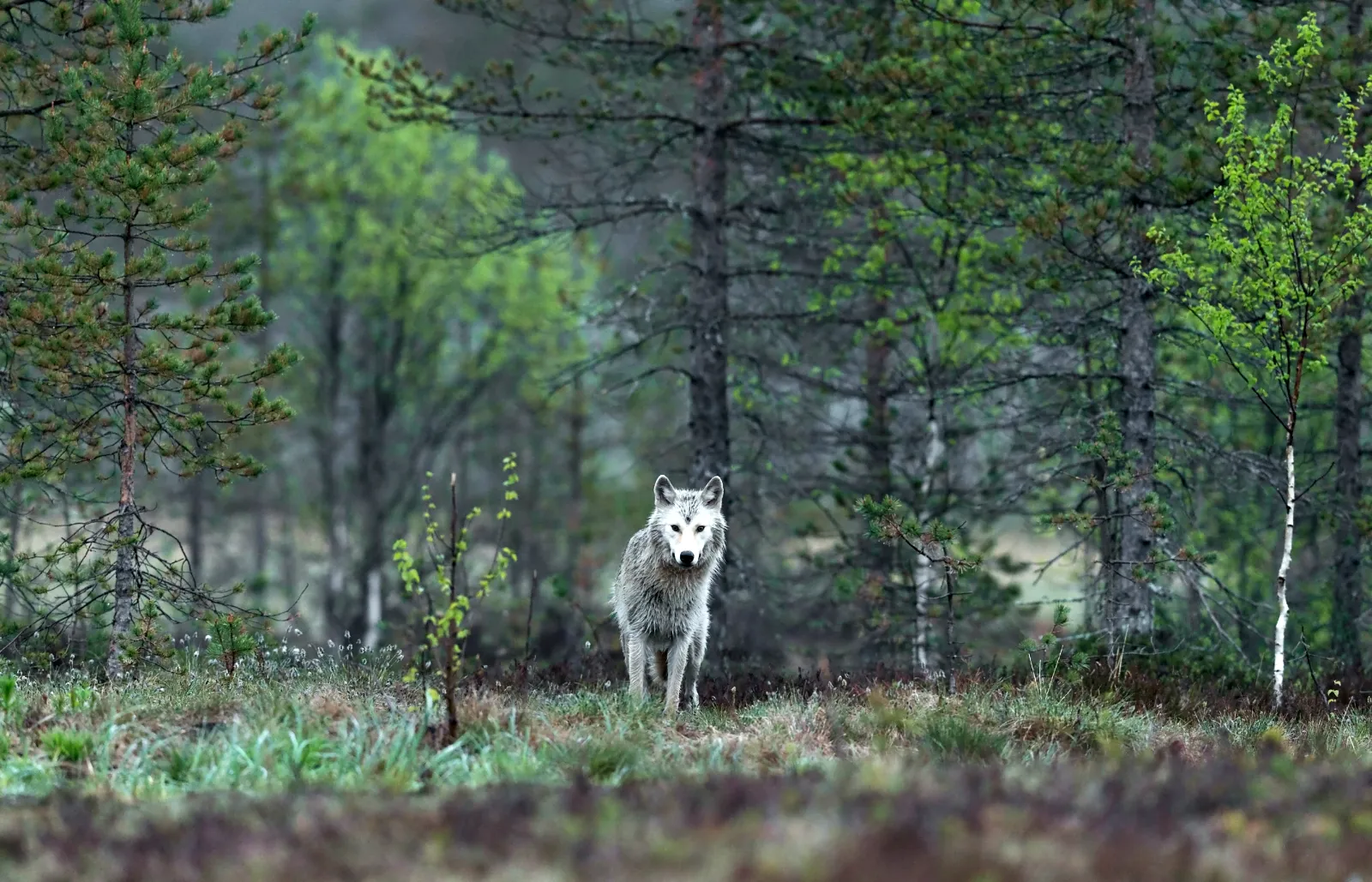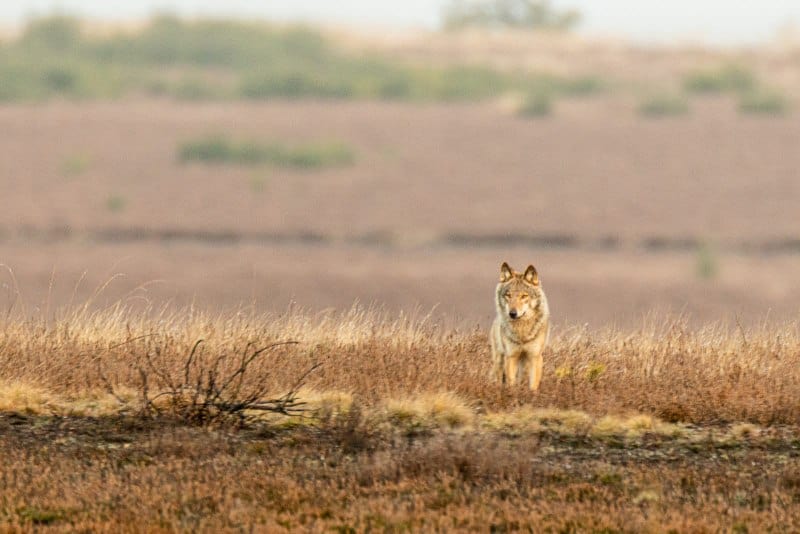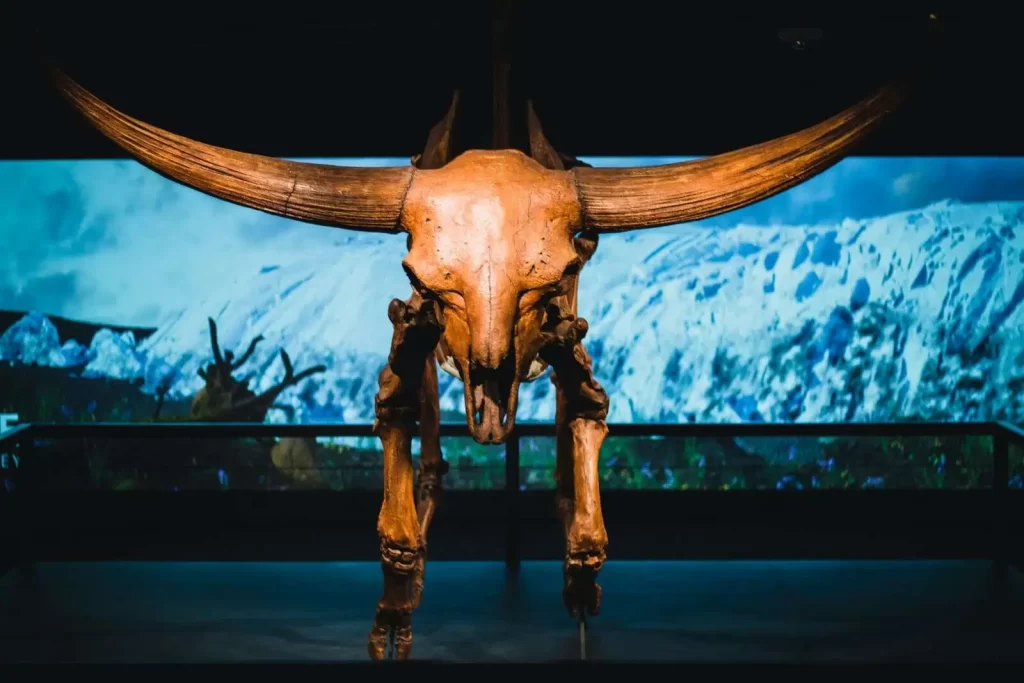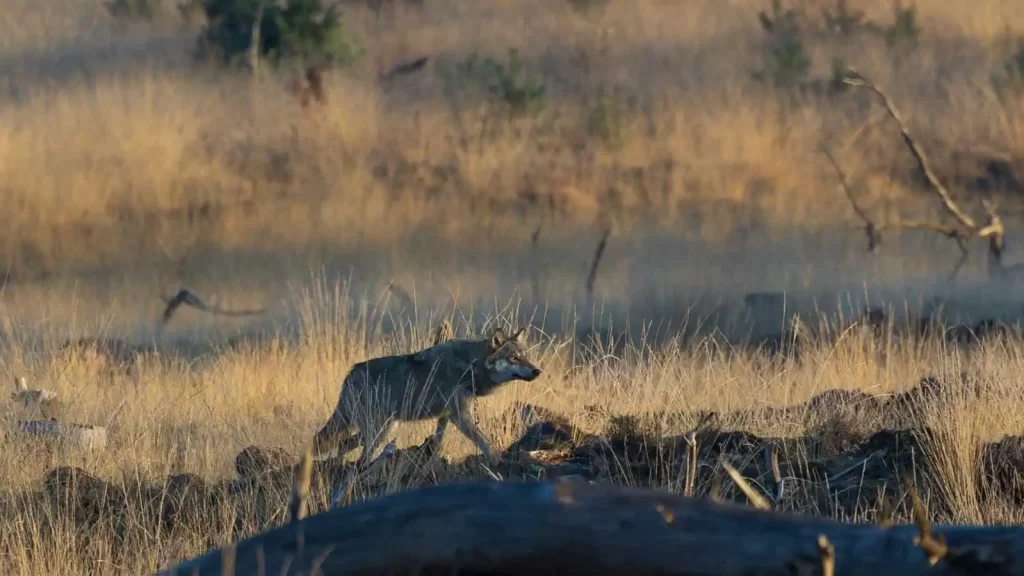Share:
Future Challenges in Wolf Recolonisation

Gray wolf (Canis lupus) conservation in the United States has achieved remarkable success over the past three decades, with populations expanding to encompass a wide range of regions. This success, however, brings forth significant challenges as wolves continue to venture into human-dominated landscapes. In a recent article, wildlife biologist David Ausband and wolf expert David Mech highlight key scientific and social challenges facing the conservation, recovery, and management of wolves in the years ahead. They also propose actions to address these challenges.
Scientific Challenges
- Predicting Colonization and Dispersal Dynamics: While we’ve learned much about wolf ecology and habitat preferences, accurately predicting wolf colonization and dispersal patterns in short time intervals remains a complex task. Overcoming this challenge is crucial to understanding their movements as they recolonize new areas.
- Reducing Hybridization and Disease Transmission: The potential for hybridization with other species, such as dogs, poses a concern as wolves occupy more diverse landscapes. Disease outbreaks, often transmissible from domestic dogs, can significantly impact wolf populations, especially in small, isolated groups.
- Mitigating and Deterring Wolf–Livestock Conflicts: Wolf predation on livestock is a substantial issue that affects wolf distribution. Minimizing these conflicts and compensating losses is essential for fostering coexistence between wolves and rural communities.
Social Challenges
- Harvesting Wolves Sustainably While Satisfying Diverse Stakeholders: Managing wolf populations sustainably while satisfying a range of stakeholder interests, including those who may want liberal wolf harvests, can be a contentious issue. Balancing conservation efforts with human concerns remains a challenge.
- Averting a Reduction in Tolerance for Wolves Due to a Disinterest in Nature: As wolves expand into human-dominated landscapes and interact more frequently with humans, pets, and livestock, tolerance for these animals may decline. Additionally, a growing urban-rural divide in attitudes towards wolf conservation may further complicate efforts.
- Engaging Diverse Stakeholders in Wolf Conservation to Avoid Management by Ballot Initiative or Legislative and Judicial Decrees: Over recent years, tension and disagreements over wolf management have led to developments that bypass traditional wildlife management processes. This trend, such as management decisions being made through ballot initiatives, can be detrimental to sound conservation practices. Engaging diverse stakeholders and finding common ground will be crucial in addressing these challenges.
The future of wolf conservation in the United States relies on addressing these scientific and social challenges. Enhanced predictive models, increased monitoring for hybridization and disease, and innovative methods to mitigate conflicts with livestock are essential for scientific progress.
Socially, outreach efforts and stakeholder engagement are key to maintaining tolerance for wolves and avoiding ad-hoc management decisions. Wolves play an important role in ecosystems, contributing to the restoration and rewilding of entire landscapes.
Europe
While the primary focus of this analysis has been on the challenges faced by wolves in the United States, it’s important to recognise that similar challenges may arise in other regions worldwide as wolf populations expand. A notable example of this is the recolonization of wolves in Scandinavia and various parts of Europe in recent decades. Unlike their American counterparts, European wolves often occupy landscapes heavily influenced by human activities, leading to increased conflicts with livestock farming and reduced human tolerance towards these apex predators.
Across Europe, wolf recolonization efforts have thrived by fostering early engagement with stakeholder groups and local communities, as well as providing ample resources for population monitoring, conflict prevention, and reimbursement for losses incurred.
It’s worth noting that the strategies proposed for addressing wolf conservation and management challenges in the United States could prove beneficial for other regions experiencing wolf recolonisation. The lessons learned from managing wolf populations in the United States offer valuable insights that can inform global efforts to navigate the complex dynamics of wolf-human coexistence in an ever-changing world.
More information:
The challenges of success: Future wolf conservation and management in the United States
Featured image: Hans Veth/Unsplash






